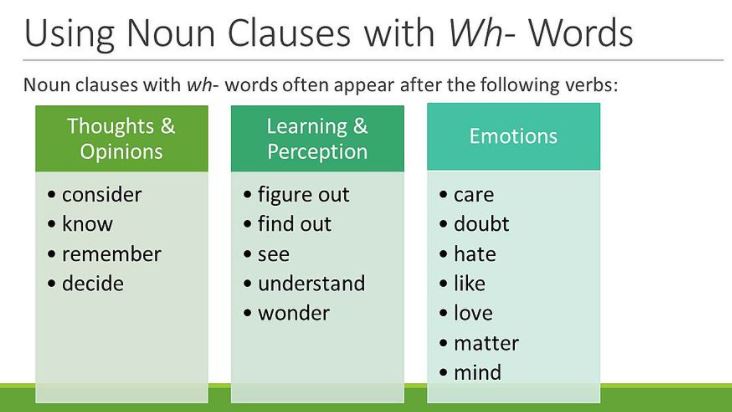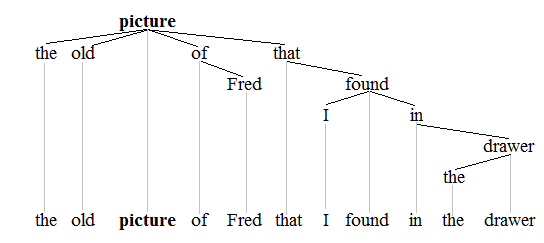The key difference between noun clause and noun phrase is that a noun clause has a subject and a verb, whereas a noun phrase has a noun but no verb.
Both noun clauses and noun phrases have the same grammatical functions as ordinary nouns. Both function as subjects, objects, and complements of a sentence. Their difference mainly stems from their composition.
CONTENTS
1. Overview and Key Difference
2. What is a Noun Clause
3. What is a Noun Phrase
4. Noun Clause vs Noun Phrase in Tabular Form
5. Summary – Noun Clause vs Noun Phrase
What is a Noun Clause?
A noun clause consists of a noun and a verb, just like in a sentence. In a sentence, a noun clause cannot stand alone as a complete thought since it is a dependent clause. A noun clause can take the place of any noun in a sentence, whether it is a subject, an object, or a subject complement. For example,
“She loves what she wears.”
In the above sentence, the noun clause “what she wears” is used as the object of the sentence.

A noun clause may have different functions in a sentence. It can not only function as an object but also as a subject, a direct object, an indirect object, an object of the preposition, and the subject complement. A noun clause can be replaced by a pronoun. For example, in the sentence, “Did you hear what teacher said,” the noun clause “what teacher said” can be replaced with the pronoun “it” as “Did you hear it?”
What is a Noun Phrase?
A noun phrase consists of a group of words. It is headed by a noun, but there are no verbs in it. A noun phrase plays a role of a noun, and the modifiers of the noun phrase can come before or after the modifier. For example, in the noun phrase: “the girl” modifier “the” comes before the head noun “girl.” Nevertheless, in the noun phrase “the cat on the chair,” the modifier “on the chair” comes before the head noun “cat.”

Noun phrases add more details to a noun. In the sentence, “The cat on the table drinks milk,” the noun phrase “The cat on the table” functions as the subject of the sentence. Like any other noun, nouns phrases also function as a subject, an object, a complement, a propositional object, and as a prepositional phrase in a sentence. A noun phrase cannot stand alone as a sentence since it does not convey a complete message or a meaning.
What is the Difference Between Noun Clause and Noun Phrase?
The key difference between noun clause and noun phrase is that a noun clause includes a verb, whereas a noun phrase does not include a verb. A noun clause has a subject and a verb like a sentence. But it is dependent and cannot stand alone as a complete sentence. On the other hand, a noun phrase does not have a verb; it only has a noun and its modifiers.
Below is a summary of the difference between noun clause and noun phrase in tabular form for side by side comparison.
Summary – Noun Clause vs Noun Phrase
The key difference between a noun clause and a noun phrase is their structure. A noun clause has a noun and a verb, whereas a noun phrase does not have a verb, and it only has a noun and its modifiers. Both noun clauses and noun phrases have the same grammatical function.
Reference:
1. “Noun Clauses.” Grammar Monster.
2. “Noun Phrases.” Grammar Monster.
Image Courtesy:
1. “Noun phrase tree 1” By Tjo3ya – Own work (CC BY-SA 3.0) via Commons Wikimedia
2. “Noun Clauses” By Jweimer2 – Own work (CC BY-SA 4.0) via Commons Wikimedia
ncG1vNJzZmivp6x7pbXFn5yrnZ6YsqOx07CcnqZemLyue9ahmK1lmah6tbTEZpuinpaav6a6wp5km52krLKmuoynpq6mXZi5osHSnmSappRiu7DBzWanoaqRqLJw